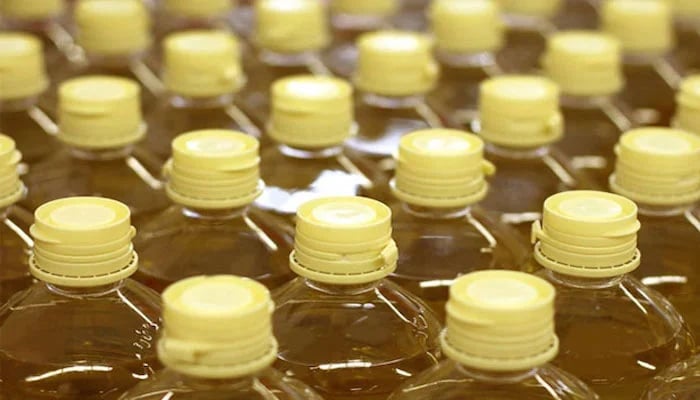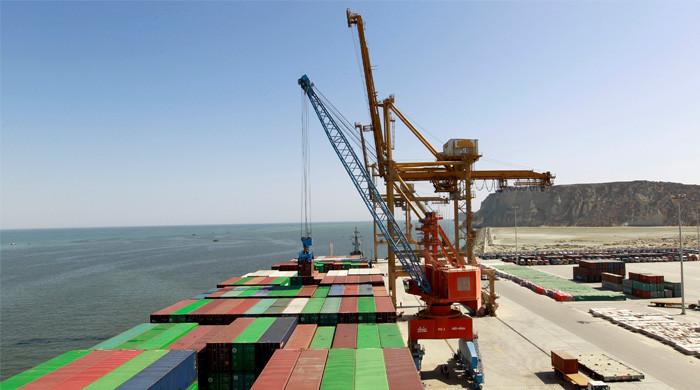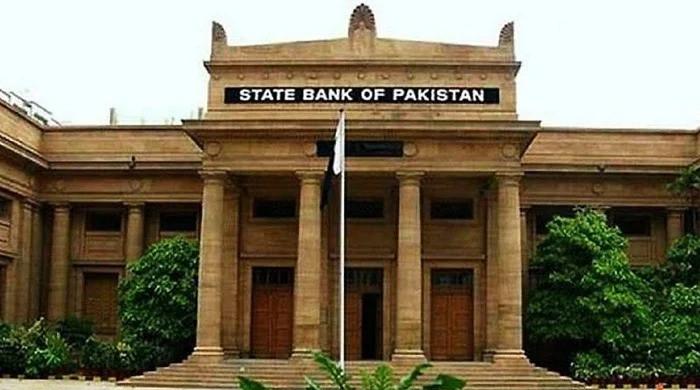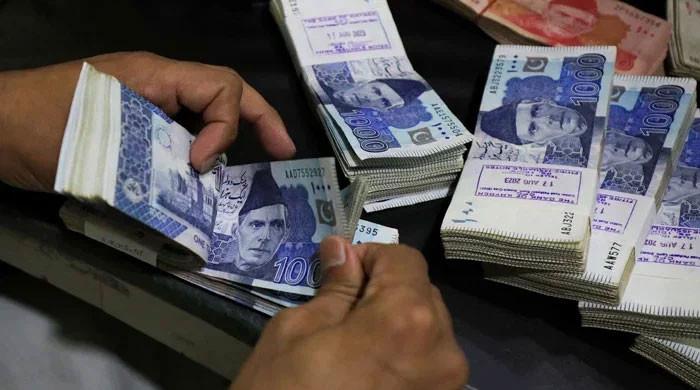Massive drop in ghee, cooking oil prices expected
Ministry of industries tells NPMC it expects Rs20 per kg drop in price of ghee and cooking oil in a month
September 29, 2022

- Ministry of industries expects Rs20 per kg drop in ghee, cooking oil price.
- Reduction in price expected after up to 40% drop in palm oil rate.
- Palm oil's price in int'l market drops to less than $1,000 per tonne.
ISLAMABAD: With a reduction in palm oil prices in the international market by 35%-40%, the ministry of industries has informed the National Price Monitoring Committee (NPMC) that they are expecting a Rs20 per kg decrease in the price of ghee and cooking oil in a month.
The representative of the ministry on Wednesday, according to The News, informed the NPMC that there was a time lag of a couple of months, so the manufacturers were producing palm oil based on Goods of Declarations (GDs) cleared in June and July 2022.
Then the exchange rate depreciation also played a role, so as per their conducted study, the price of ghee and cooking oil should be reduced by Rs20 per kg in the domestic market.
On the other hand, the prices of palm oil in the international market witnessed a decline from $1,500 per tonne to less than $1,000 per tonne, so the prices registered a decrease of 35%.
The prices of palm oil in the international market had touched $1,800 per tonne a few months back and the prices in the domestic market had touched their peaks.
It’s quite strange that the government has so far remained unable to reduce the prices in the domestic market.
An official statement Wednesday said that Minister for Planning, Development and Special Initiatives Professor Ahsan Iqbal chaired a NPMC meeting in Islamabad to assess the implementation status of the decisions taken in the previous NPMC meeting.
Chief Economist Dr Nadeem Javaid, officials from the Ministry of Finance, line ministries, FBR, Trading Corporation of Pakistan, Utility Stores Corporation of Pakistan, PASSCO and representatives of provincial governments were present.
The minister, in light of recent floods that hit commodities including wheat, potatoes, tomatoes and other crops, reviewed the measures taken by the concerned departments and their subsequent impact on the trend in prices of essential items.
The Pakistan Bureau of Statistics (PBS) presented the report on the Sensitive Price Index (SPI).
It was reported that the process of 10 essential items, including electricity, tomatoes, LPG cylinders, bananas, garlic, pulse Masoor, cooking oil, etc, have been reduced during the last week.
The report on commodities with increased prices, including wheat, was also presented. The estimate taken from various provinces, covering 17 cities, was also discussed in the meeting.
It may be noted that the SPI is computed on weekly basis to assess the price movement of essential commodities at a shorter interval of time to review the price situation in the country.
The Competition Commission of Pakistan submitted an analytical review on profiteering phenomena all over the country.
The planning minister directed to discourage undue profiteering by retailers and to take concrete measures in this regard.
As there are huge gaps in the prices of wholesale and retail markets, the minister also directed the provincial governments and Islamabad administration to make concerted efforts to mitigate the profit margins between wholesale and retail prices of essential items.
The planning minister directed the provincial administration to strictly monitor profiteering by taking all the associations into the loop to transfer relief to people.
The ministry of industries stated that there is a significant decline in palm oil prices in the international market.
However, the impact of a sharp decline in the international market will be passed on with a lag in the local market.
The minister directed the ministry of industries to ensure the deceleration in the prices of ghee and edible oil by Rs20 within the next month.
The meeting was informed that due to flood devastation, commodity supplies have been drastically reduced, impacting the overall price rise. The minister stressed the supply of wheat from Layyah should have a substantive impact on the prices of wheat in Balochistan.











